It is not easy to handle the competition in the Google Play Store. Hundreds of similar apps are out there battling for the spotlight. If you’re wondering is there any way to get your app at the top of the page, there are some good app store optimization strategies you can utilize to harvest the success of your game or app. One of them is certainly assigning relevant categories and app tags.
What are Google Play Store Tags
A tag is a predefined word that describes the content and functionality of your app or game for users. Google Play tags are active in the Google Play Store since August 2019 and they share the same characteristics as app keywords in the Apple App Store.
Tags help app store visitors to filter and find what they need without any struggle and endless scrolling. The most prominent apps with the best ratings, app conversion rates, and popularity will show up as the top results in every category or tag.
What are Google Play Categories
You can consider app categories as the umbrella term when it comes to app organization within the Google Play Store. They combine apps into clusters based on their features, design, functionality, and purpose. Within one category, you can find multiple tags that correspond to it.
Pay attention to the circled words in the picture. Those are tags for kids’ games (app category). While you can put only one category for each app, you can add up to five different tags. Usually, Google Play developers include two or three tags to the specific app.
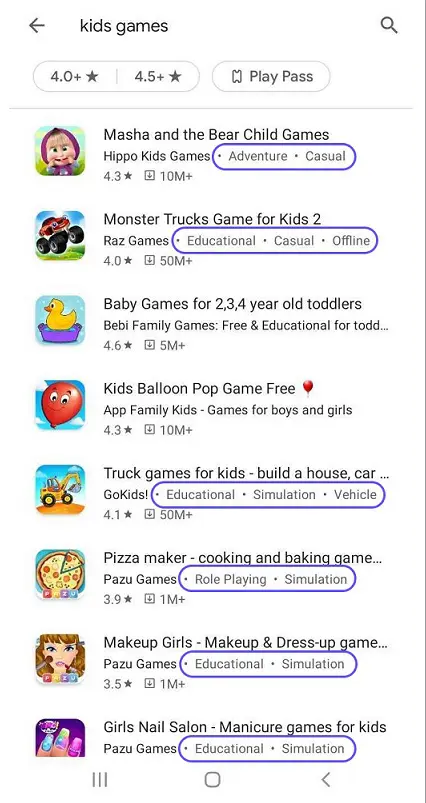
ASO: How Tags Affect your App’s Ranking and Visibility
A user can find your app in the Android Google Play Store in two ways. Firstly through the “search” option, and secondly by browsing the Play Store. Using tags is a great ASO tool for improving discoverability and providing a better user experience.
Tags immediately give the overview of the app. The user doesn’t have to read a lot or search what the app is about.

In this picture, you can see the title of the app, the developer name, rating, number of downloads, and three relevant tags for this app that describe it. From the user’s perspective, these tags definitely help in choosing which app to check or download.
Tags affect the app’s visibility and conversion rates
Developers can expect an impact on impression and downloads from “explore” when updating tags. Also, it is very easy to compare the tags with competitor’s apps. Using the right tags will likely lead to higher conversion rates and better visibility over time, improving the overall app ranking.
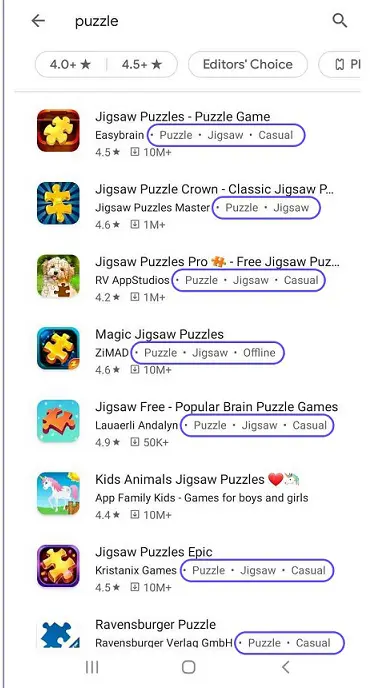
Tags can improve the app’s performance through the peer groups your app is compared to. Peer Groups give a detailed insight into app ratings, vitals, and acquisition data with similar apps or games.
How Tags Affect App Store Algorithm
As Google Play Store wants to provide the best user experience possible, lots of data have been collected and analyzed to match the user’s interests and needs.
App Store Algorithm groups apps together depending on their similarities. When the app algorithm recognizes the similarities between apps, it presents them together so the user can compare them on the spot.
How To Choose Google Play Store Tags
Be careful while choosing the tags. If you try to abuse them by adding popular tags unrelated to your app, Google will recognize it and your tagged app might be banned or just not shown to users.
Also, make sure that the tag you’re using is truly relevant to your app. That is rule number one and it has to be respected. It must be apparent and clear to the user what’s the function of your app. Check Google’s Guidelines regarding choosing the best tag for your app.
Google advises:
“You should choose tags that are most obviously relevant to your app. It should be very clear to a user unfamiliar with the app why the tag is relevant based on the store listing or initial in-app experience.”
For example, the crossword app can contain tags such as “word” or “crossword” but should not opt for “word search” and such.
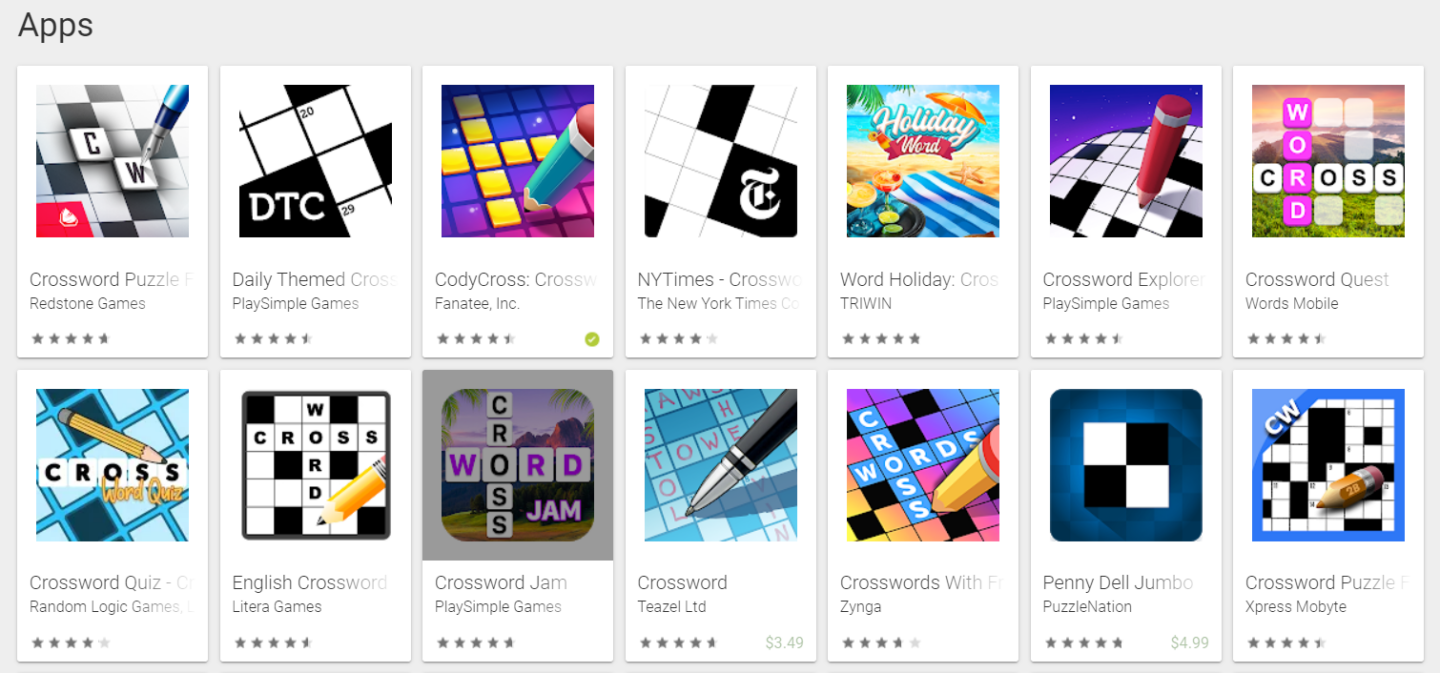
Adding App Tags in Google Play Store
The process of adding tags to your app is pretty straightforward. All you need to do is follow these instructions.
- Open the Google Play Console
- Open the app you want to assign tags to
- On the left menu, open Grow > Store Presence > Store Settings
- Below you will find App Category – choose the one you think suits your app the best
- Open Manage Tags section
- Finally, you can add tags. There are “suggested tags” by the Google algorithm. You can select those, or use other ones which you can find through “Search tags”, the category filter, or by scrolling the list under “Other tags” to find and add them.
- Do not forget to save the changes!
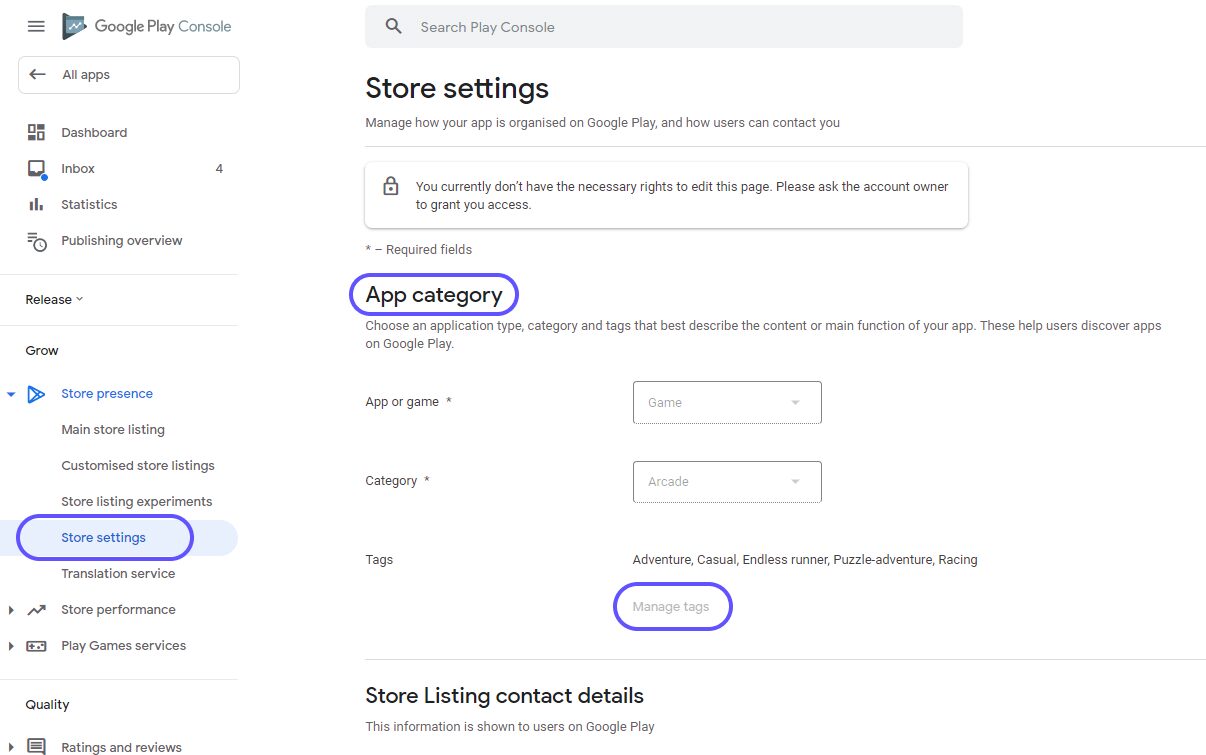
As we already mentioned, you can add up to 5 tags to your app. However, think about the functionality and if adding all five might be more detrimental than beneficial for your app’s growth. Sometimes less is more.
After adding or editing tags, it can take up to 24 hours for those tags to become visible in the Google Play Store.
Also, Google can automatically add tags to your app. Interestingly, some of these automatic tags are not even available for developers to choose from in the Google Play Console. Some examples include “Offline”, “Single Player”, and “Stylised”.
The analysis of app tags showed that games on Google Play feature 4.68 tags on average. Out of those, 2.68 were assigned by Google and cannot be manually selected. The remaining 2 tags were selected manually by the developers.
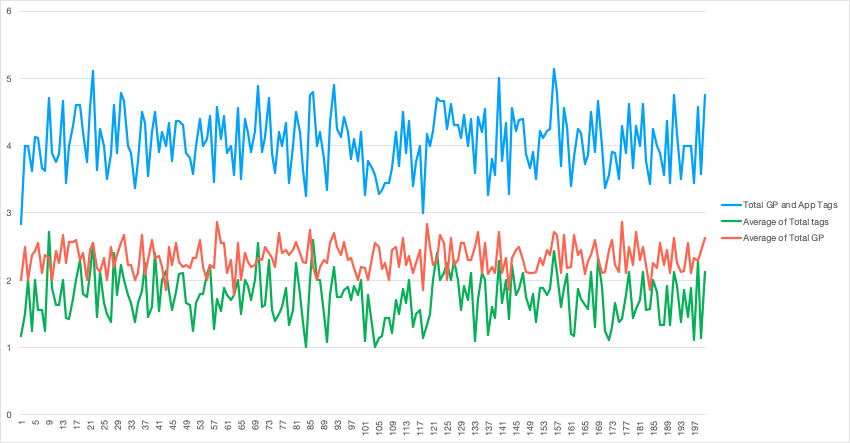
When it comes to games, some tags are more popular than others. We would like to point out the “Casual” tag that is present in 11.61% of apps of the research’s sample. The ones that are catching up are “Arcade” with 9.68%, “Puzzle” with 9.03%, and “Action” with 8.39%.
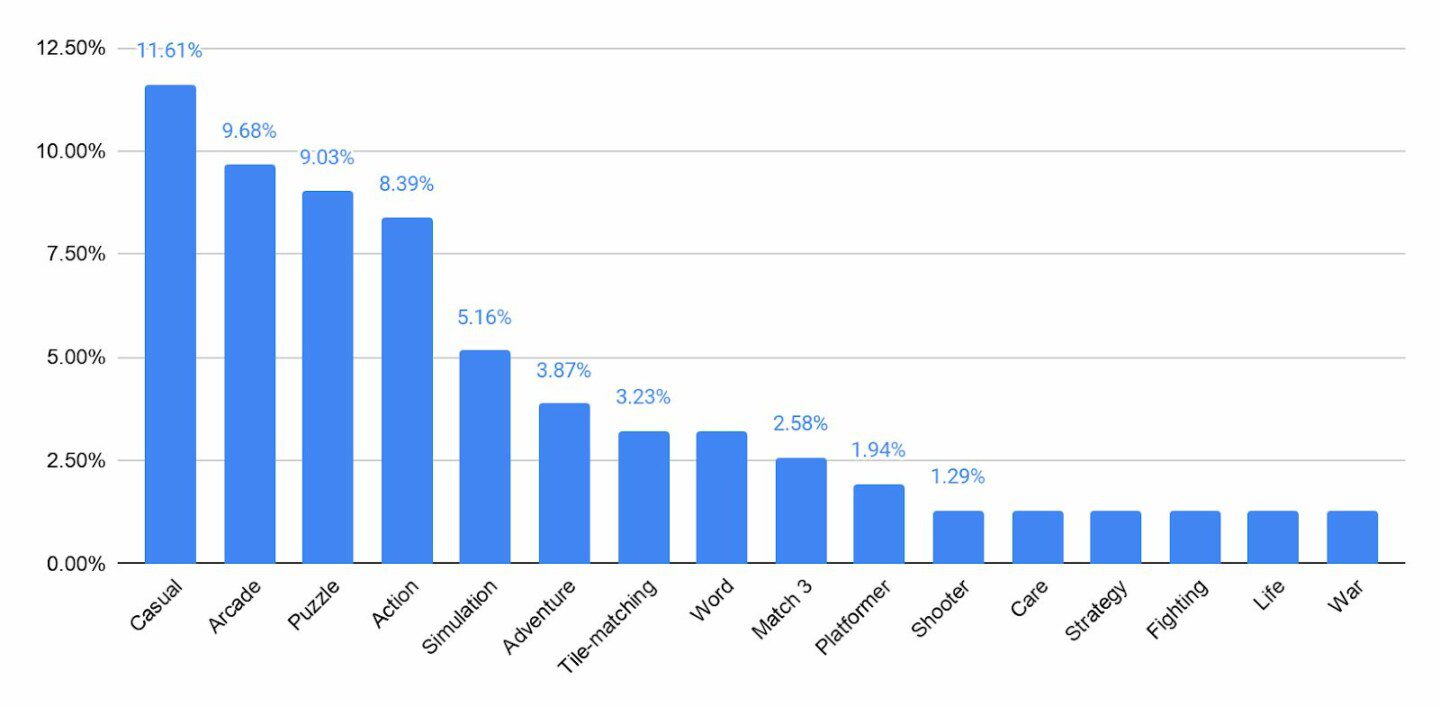
In conclusion, choosing the proper Google Play categories and tags for your app has a major impact on the visibility, conversion rates, and app store rankings. Make sure to check out the competition and see what tags they chose for their apps.



